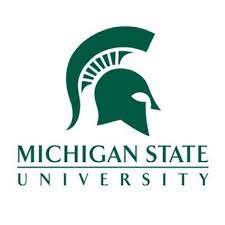

MSU Extension, Michigan Pork Producers Association, United Dairy of Michigan and Michigan Turkey partner to train first responders in accident response.

Responding to accidents is never easy for law enforcement officers and other first responders, especially when other factors — like accidents involving animals during transport — complicate the accident scene. With Michigan’s robust animal agriculture industry, it is important to have knowledgeable, trained responders that are prepared for these types of situations. To increase the skills and understanding of responders to accidents involving livestock, Michigan State University Extension’s Emergency Response to Accidents Involving Livestock (ERAIL) program focuses on building a network of trained and properly equipped responders across Michigan.
This program utilizes a multi-faceted approach to provide information, resources and training for a specific audience that includes law enforcement officials, first responders, animal control officers, veterinarians, road commission workers, livestock transporters, people involved in the animal agriculture industry and others who may respond to accidents involving livestock. Virtual training, accessibility to specialized equipment, and networking are some of the priorities of the MSU Extension ERAIL team, along with providing hands-on, practical training for anyone who is involved in accident response. Recently, the MSU Extension ERAIL team, along with Michigan Pork Producers Association, United Dairy of Michigan and Michigan Turkey partnered to bring first responders to Michigan State University for this specific training.
“We have a highly trained community of first responders across Michigan that are extremely good at responding to accident situations, however when an accident scene also involves animals, it becomes very chaotic, very fast,” Tom Guthrie, ERAIL team member said. “This is why it is important to provide training for first responders on animal handling and behavior, along with providing access to the specialized equipment needed for these specific accident response situations.”
Participants in the training heard from industry experts on animal behavior and handling, following this session they were able to put their newly learned or enhanced skills to use by working with beef cattle, sheep, pigs and chickens, using handling tools and equipment to move them and practice loading and unloading the animals onto trailers used for transportation. Including those trained in the most recent session, MSU Extension has now provided training in this area to over 500 responders in Michigan.
According to Mary Kelpinski, CEO of Michigan Pork Producers Association, opportunities that allow our first responders to gain hands-on experience handling animals is key to making the ERAIL program successful. This is reinforced by the fact that in post-program surveys all participants indicate they are more comfortable handling livestock and feel more prepared to respond to an accident involving livestock after attending an ERAIL training. Kelpinski also said that we are fortunate to have resources like the MSU Pavilion for Agriculture and Livestock Education and South Campus Animal Farms with farm managers that are willing and able to provide animals for hands-on demonstrations and training.
The ERAIL program in Michigan will continue to grow and provide much-needed training and resources for our emergency response community. Efforts are underway to source and place the additional specialized equipment needed for accident response in the form of ERAIL Response trailers strategically located across the state in areas of major animal transportation routes. By providing training and access to specialized equipment, Michigan will become better prepared to respond to accidents involving livestock. This supports the safety of the first responders, the general public traveling the roads and supports the welfare of the animals involved in these situations while also supporting the vast animal agriculture industries we have in the state.




